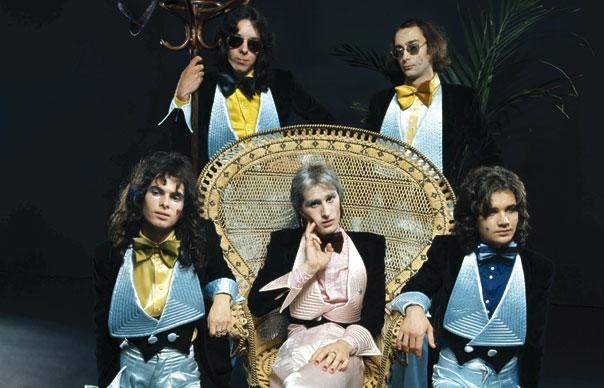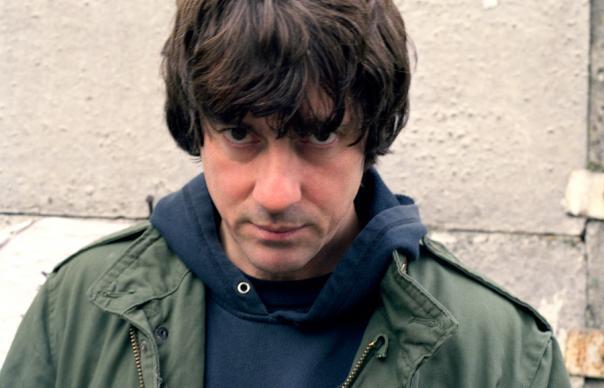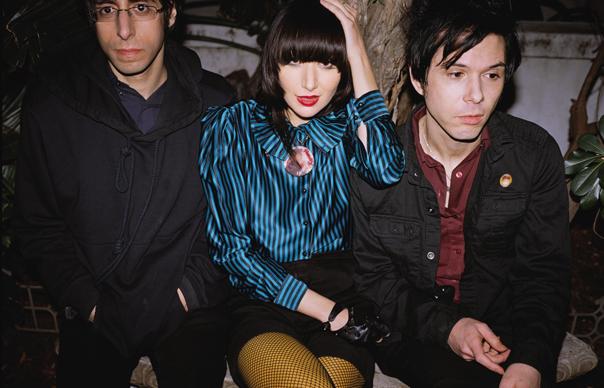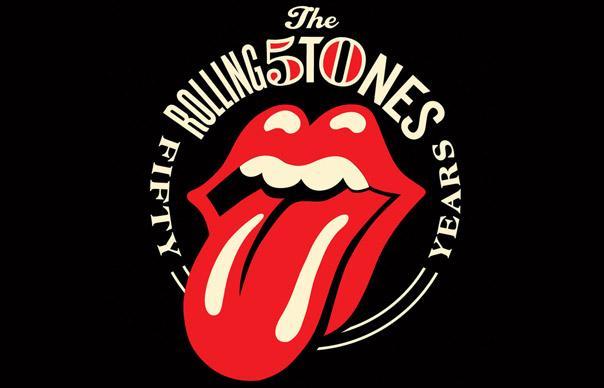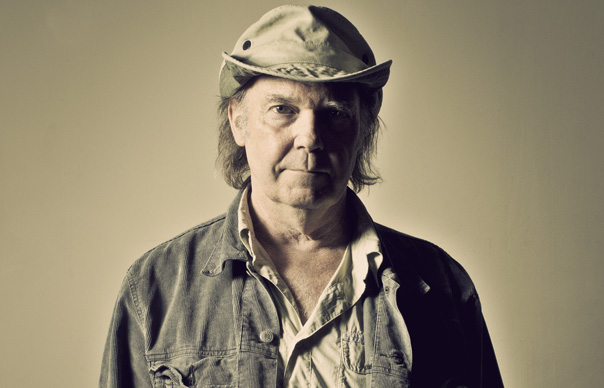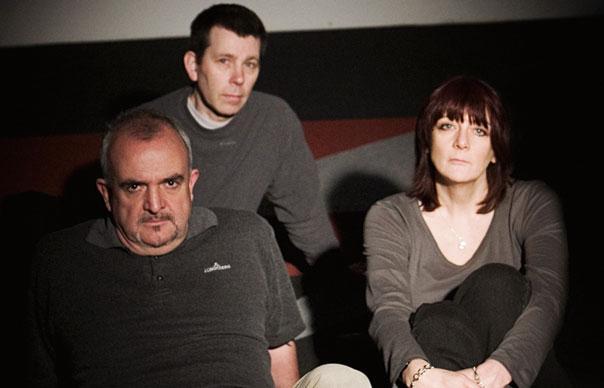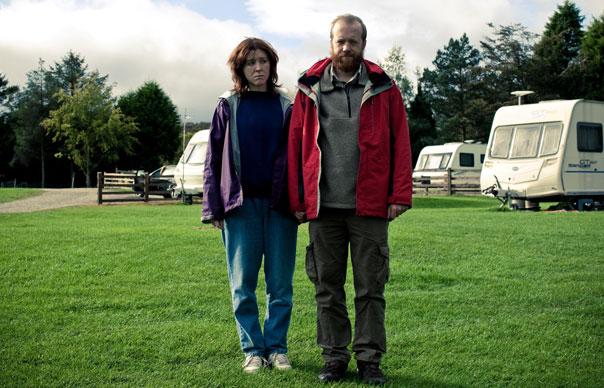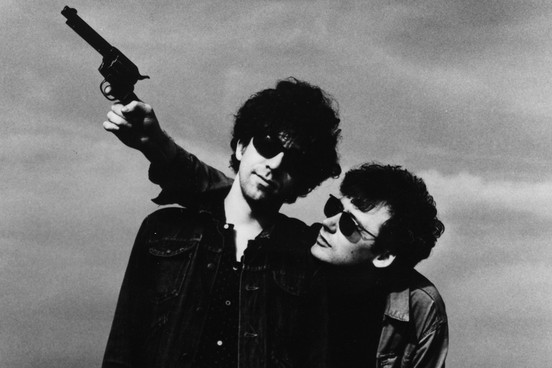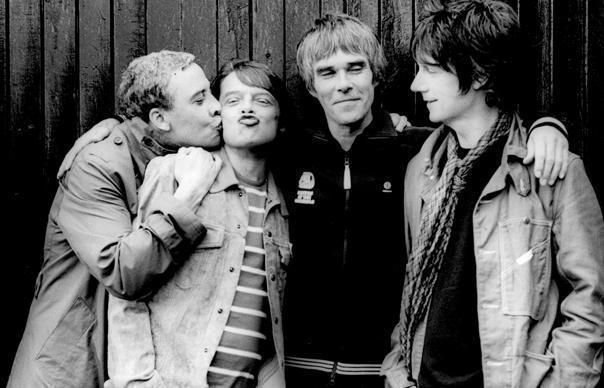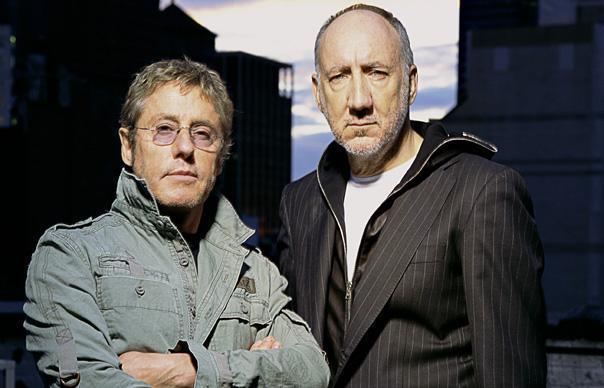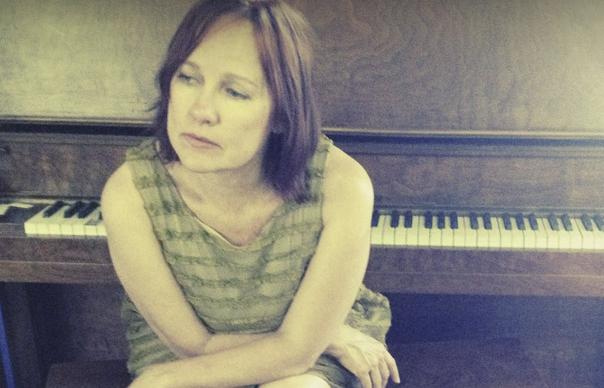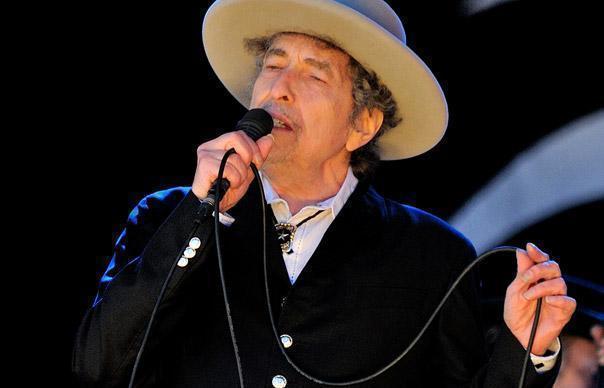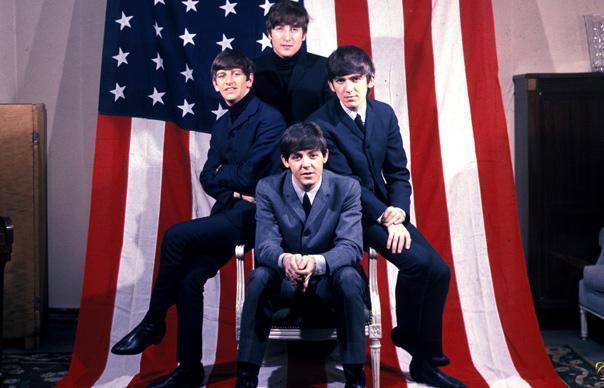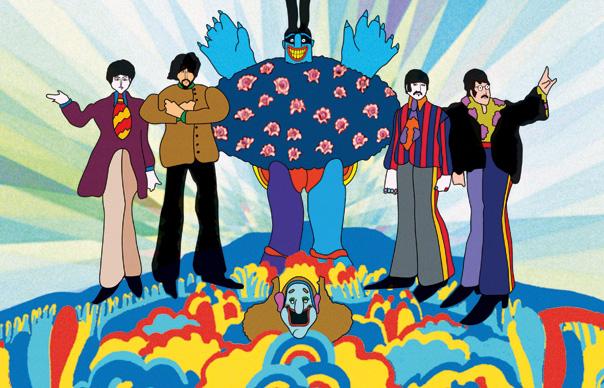In celebration of Neil Young’s triple appearance in our review of 2012 (Americana and Psychedelic Pill in our top 50 albums and Waging Heavy Peace in our top 20 books of the year), here’s a look back at an unusually revealing interview with Neil Young (from our September 2007 issue, Take 127) – taking in car graveyards, his mother’s ashes and the truth about Archives and Chrome Dreams… “The Great Spirit has been good to me,” he says. Words: Jaan Uhelszki
_____________________
He might be one of the wealthiest rock musicians in the world, but Neil Young still retains something of the untamed savage. Maybe it’s those prodigious sideburns, fuzzy as twin albino Amazonian caterpillars. The scarecrow-cum-woodsman look that he’s sported in recent times has been toned down, mind, but that could be because on this Indian summer day in Manhattan – September 11, to be precise – it is far too warm for plaid.
Today, Young is wearing too-large jeans and a black Willie Nelson T-shirt. A pair of silver-rimmed aviator shades dangle from the neck of his shirt, much like the mirrored reflector glasses that he used to keep the world at bay with in the 1970s. The hair is less unkempt than usual, still damp from a shower, and brushed back neatly from his high forehead. Two months from his 62nd birthday, Young’s features are chiselled and defined and, if you take a step back and squint, he resembles no-one so much as James Garner.
Nevertheless, he still cuts a wild figure in this over-decorated suite at the Carlyle Hotel, a luxurious home-away-from-home for diplomats, bejewelled matrons and top-tier rock stars.
He is not, historically, the easiest of interviewees: fastidiously guarded, his slate-blue eyes traditionally grow narrow and dark when he is angered or distraught. But this time he is less wary, teetering somewhere between suspicion and amusement, but never landing on either. As he embarks on a meticulous journey through his past, in the wake of a string of bereavements and a near-fatal aneurysm, it seems as if this stoical figure has finally made an uneasy peace with both his mortality and his career.
The interview is running 90 minutes late, postponed so that Young could fit in his daily workout routine on the Power-Plate, a fashionable form of exercise also favoured by Madonna and Clint Eastwood. A piece of equipment developed by Russian scientist Vladimir Nazarov to help prevent astronauts’ muscles suffering atrophy, the Power-Plate emits a series of high-speed vibrations that give your muscles an accelerated workout, making them relax and contract up to 50 times a minute.
It’s akin to standing on a tumble dryer, and there are critics who think that all that high-powered jiggling could possibly harm the brain. But that’s not something that bothers Young. After having suffered that aneurysm in 2005 and subsequent corrective surgery to implant tiny platinum coils in his brain, he has a sense of freedom nowadays. Two days after he was released from the hospital, Young collapsed in Central Park, a vascular complication leaving him bleeding and unconscious. “I just knew I wasn’t ready to go,” he says today, still more than a little bemused.
The Power-Plate has worried Young in one way, though: he feared it could affect the songs he was recording for what has become his extraordinary 43rd album, Chrome Dreams II, a sequel of sorts to 1977’s legendary unreleased Chrome Dreams (the original home of “Like A Hurricane”, “Powderfinger” and “Sedan Delivery”).
“I reviewed how the songs ended up sounding the way they did, by looking at other activities that I had done during the period on the same day,” he says, adjusting his body into an architecturally challenging wing chair that looks like a woolly plush animal. “I have a certain exercise regime that I go through, and I wanted to know if there was any correlation. So I look back at that. But really, this music just started coming out.”
__________________
“All it takes to get me started is a good environment and then I’ll start thinking about music,” he explains, shaking his head back and forth a few times, as if the process amazes him as much as it does us. Eighteen months ago, he told me, “Accessing creativity – it’s like approaching a wild animal in a hole. If you try too hard, it’s gonna get away. You can’t corner it, you can’t scare it. You consistently stay there with it, and wait for it to come out.”
The trouble is, Young just doesn’t know when that will be. Sometimes it descends on him like a wilful ghost, or an unplanned pregnancy, causing havoc with the best-laid plans. For a while, the urge stayed away. “Greendale [2003’s equivocally received environmental concept album-cum-community musical] was such a huge thing that it just drained me, I didn’t pick up a guitar for almost 18 months. I don’t sit around and practise. If I don’t feel like it, I don’t do it. And if I do feel like it, I won’t do anything else.”
Since 2005, songs have come hurling out of him, like one long bout of projectile vomiting. After he was diagnosed with the aneurysm, Young finished the eight songs that would form the basis of Prairie Wind in just four days while awaiting surgery. With last year’s barnstorming, audacious Living With War, it was much the same. He wrote and recorded it in a blistering nine days – and then released it a month later, testament to both an unruly muse and the level of his moral disgust over the war in Iraq. It has been a hectic period, also notable for two tantalising teasers of his endlessly promised Archives set: Live At Fillmore East, capturing his marauding 1970 tour with Crazy Horse; and Live At Massey Hall, a 1971 acoustic show in Toronto that would presage Harvest.
Living With War was only released in spring last year, so no-one, least of all Young himself, suspected there would be another album hovering on the edge of his subconscious. “I really wasn’t planning anything,” laughs Young. “I don’t know what it is, but I’m thankful for this bout of hyperactivity. I just let it happen.”
Before Chrome Dreams II materialised, Young was actually occupied with a couple of other things. He was due to travel to Nashville with Pegi, his wife of 29 years – the bartender of his favourite bar near Santa Cruz in the early ’70s – to help get her eponymous debut LP off the ground, originally slated for 2005. In a New York hotel room prior to setting off, he spotted something in his eye while shaving – a first sign of the aneurysm, but he carried on to Nashville after diagnosis, as his doctors couldn’t operate right away.
“I had planned to do it then,” Pegi says, “and the next thing you know we’re in Nashville making a record, and it’s his record. So at any rate, I had to wait my turn again to work with the band, and obviously the priority was to get him back.” Even Pegi Young is mystified by her husband’s creative vagaries, though. “Neil does what Neil wants,” she adds, “and if he’s not ready, not a thing in the world will make him do anything that’s not his idea.”
Besides Pegi’s album, Young was spending an hour or two on the Archives, his long-promised “Audiobiography” project that has been on and off the release schedules for the past 15 years. The first volume of this massive collection of his life’s work might just come out next February, though rumours suggest it may be pushed back yet again to autumn 2008. Volume One covers the period from ’63-’72, stretches across eight CDs and two DVDs, and features myriad unreleased studio and live recordings, rare photos and personal letters, plus a 150-page booklet. Young has been hands-on from the start of the project, most recently unearthing all the reviews – good and bad – that ran at the time.
The mythic archives are currently housed in a charmless, windowless industrial outpost just north of San Francisco airport. One day, though, Young found himself on a part of his 1,800-acre Broken Arrow ranch, 35 miles south of San Francisco in the hills of San Mateo County. He was wandering through the yawning corridors of his car barn, a massive structure that he’d just built to house his 50-odd gleaming vintage motors, thinking about anything but making music.
“I got some old cars I was going to put in the building, and when I was walking around I realised the floor was cement. I didn’t like the way it felt on my back,” he says, pausing for the briefest second and unconsciously running his hand along the left side of his body: Harvest, remember, was recorded with Young in a back brace.
“I said to myself, if I’m going to hang out in here and look at these cool old cars and stuff, it’s not going to be fun if I’m going to be tired from walking on cement. So I went out and bought the thick, spongy rubber flooring they put behind bars for people to stand on. I covered the entire floor with it. And I walked on it, and it felt great. It was amazing.
“And then I realised that after I put the stuff down, it sounded incredible in there. It went from being a tank, a terrible-sounding place where you’d never want to play music, to a very interesting-sounding place. It had a corrugated roof and corrugated wainscoting and wooden walls and glass windows, so it had a lot of high-end loud. When I put the rubber down, it dampened it like 80 per cent. So it was instantly loud from the ceiling, and then gone, instead of bouncing around.
“That’s what you want. You want the big new sound, the big fresh sound to be real loud. And big. Usually a big sound will have so much power that it’ll start bouncing around and overcome the next sound, so the sounds wash together. But the rubber on the floor seemed to dampen it completely. I noticed the holes had the cement still coming through them, so I filled up the holes with sawdust. And then it sounded incredible. It’s the best sounding place I’ve ever played in.”
So because you changed the sound in your car garage, you started getting the inspiration to write?
“That’s how it happened. Called it Feel Good’s Garage. Then I thought, well, I’m going to get together some guys that have never played together before, put together a different combination, and go in this little room and see what it sounds like. And then when we started playing, I started grooving and having more and more fun, and started playing more.”
Young had no songs written, but he and his pals – one-time Bluenotes bassist Rick Rosas, Stray Gator guitarist Ben Keith, and Crazy Horse drummer Ralph Molina – began re-recording a few old songs that had never quite fitted onto an album.
“After we did the older stuff, we just kept playing,” recalls Young, “and I went, ‘God, you know, this is good. And if I keep going, I might have an album.’ So I’m going to keep on going till I stop, until I run out of songs. And that’s what happens, when I get started I just keep going until the songs don’t come. And every day I come to the studio, I have a new song. And if I miss a day, then the next day there’s one and it starts coming again, I have two or three more. And when you miss two or three days, four days, well, that’s it. We’re done.”
But how did this bunch of old and new tunes become not just one of Young’s most varied and compelling sets in years, but also a sequel to an album that had never been released?
“I started thinking about the fact that when I made Chrome Dreams, I also had some old cuts on it that I drew out to fill it out,” he explains. He pours himself a cup of steaming black coffee from a sculpted china jug rimmed with gold leaf, a study of good taste and opulence, then sticks his index finger into the white cup to test the temperature and quickly retracts it with an abashed grin. I get the feeling that it’s not the first time he’s gone through this ritual.
“Quite often I’ll record things that don’t fit with what I’m doing, so I just hold onto them for a while. Some of them are so strong that they destroy what I’m doing. It’s like if you have a bunch of kids and one of them weighs 200 pounds and the other ones are 75 pounds, you’ve got to keep things in order so they don’t hurt each other. So that’s why I held certain things back.
“This gave me a vehicle to go back and grab those things, and either re-record them or just grab the originals and see how they felt now. ‘Beautiful Bluebird’ was actually recorded originally for Old Ways, and that was back in the ’80s somewhere. The record didn’t take me where the song took me, so I left it off. So then I re-recorded it. I’ll do that when I’m recording and I don’t have that many new songs. I’ll start by recording some old songs, not expecting to use them. There’s no pressure. It just gets everybody going, then I start writing more songs. But these came out well. ‘Boxcar’ came out really nicely. I’ve got a few other recordings of it, but they’re not as good as this one.”
Besides “Boxcar” and “Beautiful Bluebird”, Young dusted off “Ordinary People”, a remarkable 18-minute song that was destined for Freedom. Even he admits it isn’t exactly a perfect fit, but he still wanted it to come out now, rather than just being subsumed into Archives.
“Today that song rings maybe even more true than it did then, so I felt that that’s a good example of a song without a home, a strong song that destroyed other songs when you put it with them,” Young says. “When I recorded it, it would have gone on Freedom, but it blew away Freedom. Somehow it just didn’t work.
“It’s relentless, there is a lot of energy in that song. And it’s a little bit abusive as a listen because it is long. I mean, ‘Ordinary People’ is so overbearing that you might want to skip it every once in a while, just go ‘I can’t go there right now’. And if you do, that’s fine. ‘Ordinary People’ wasn’t able to coexist with any other records until this one. It was always there. I said, this has got to come out and it’s got to come out before the Archives because it has too much in it to be held back for 20 years.”
___________________
Three Picasso prints hang in Neil Young’s luxurious Carlyle suite, below which the singer sits easily, his battered, buckled brown shoes resting on the 288-knot Persian rug that covers the expanse of his room. In the adjoining suite, on a well-gnawed leash, his dog, Carl, a 12-year-old champagne-coloured Labradoodle waits patiently to be taken on one of his nightly prowls through Central Park. Young doesn’t routinely choose this hotel because it has housed every US president since Harry Truman. He’s not here for the Upper East Side location, the white-gloved elevator operators, the world-class original art, or the bar that used to be home to pianist Bobby Short. Young stays at the Carlyle for one good reason: he can keep his dog there.
Young’s demands aren’t quite in the same class as another rock personage “of the same stature as Mr Young”, according to the front desk at the hotel. This unnamed star insisted that the entire staff not make any noise around his fourth-floor suite before noon. Ever accommodating, the Carlyle suspended some ongoing room construction until 12:01, even instructing the maids not to start their shift until the star awakened. But unlike Young, that rock personage didn’t pen a song like “Ordinary People”.
The funny thing is, if you don’t listen to this admittedly fantastic 18-minute rant, Chrome Dreams II does feel more cohesive. It becomes the focused tale of a man on a spiritual quest, rather than a gripping odds’n’sods record searching for its own centre. Taken together, the songs seem to describe Young trying to find his way home, weirdly reminiscent of Dorothy in The Wizard Of Oz. Instead of a pair of ruby slippers, though, Young’s talisman is a hood ornament from a vintage Lincoln Continental.
“I have to say, that it’s the first time I’ve explored my own beliefs and it was just a natural thing,” he says. “It just happened this way. Usually, I find it hard to talk about those things as I don’t like to judge anyone else’s beliefs. I’m just into nature, that’s what I believe in.
“If I was to be classified now and you had to put me in a box, my favourite box would be pagan. I feel natural with it. And of course it was a huge threat to Christianity, so it took a bad rap for centuries, and that reputation still lasts. Like ‘pagan’ is considered a bad word, but it’s really not a bad word. It’s a good word. It’s a beautiful word.
“I respect people who are dedicated to organised religion, and I respect their way of life, but it’s not mine. And so I feel grossly under-represented in the current administration, but I feel I’m doing the right thing for me. The Great Spirit has been good to me. My faith has always been there, it’s just not organised, there’s no doctrine, there’s no book I follow. To me, the forest is my church. If I need to think I’ll go for a walk in the trees, or I’ll go for a walk on the prairie, or I’ll go for a walk on the beach. Wherever the environment is most extreme is where I will go. If there’s a moon, I’ll try to get out and walk under the moon.”
The spiritual path of Chrome Dreams II was prompted when Anthony Crawford – “a singer that I play with and sing with sometimes from Nashville” – was visiting Young’s ranch. Crawford took a photo of the ruined automobiles that take up about 200 yards of Broken Arrow.
“It all connected in a weird way,” explains Young. “The way it really started was that Anthony Crawford took some photographs of an old car graveyard on my property. They’re all great old American classics, but they’re all totalled. They’re the best cars, in the worst condition. Although they’re in a state of decay, they still have their classic lines. He took this one picture of a hood ornament, and the hood had moss growing on it and all this crud, and the paint was peeling. It was all tarnished and starting to come apart, looking really bad, but also looking really good.
“I related to the fact it was something great that wasn’t in its prime. I went, ‘Oh, my God, this looks like me!’ You know, because I just feel a little bit weathered and beat up a bit by things that have happened, but I feel good. And this thing looked strong and I felt good when I looked at it. I thought the title of this picture would be ‘The Pursuit Of Excellence’, but that’s not too good a name for an album. Then I started thinking of Chrome Dreams, as the picture made me think of those words. I went on the internet and started looking for Chrome Dreams to see if there was anything there. And sure enough, somebody in Germany had found an acetate, a couple of years ago.
“So naturally, I remembered a sketch that my friend David Briggs [Young’s long-time producer, who died in 1995] made for Chrome Dreams. If you turned it vertically, it looked like a beautiful woman. Turned sideways, it looked like a Chrysler. So it was amazing, just a hand sketch, and I could never duplicate it. It was destroyed in a fire, but I still remember it.” Young looks at a spot over my left shoulder, as if the ghost of Briggs is sitting there, egging him on.
What stands out most vividly about recording the first Chrome Dreams?
“I remember when I was living on the beach in LA in Malibu, and Carole King lived up the beach. I said, ‘Carole, why don’t you come over and let me play you my new album.’ About halfway through she went, ‘Neil, this isn’t an album. It’s not a real album. I mean, there’s nobody playing, and half the songs you’re just doing by yourself.’ She was just laughing at me. Because she crafts albums.
“I was out there, you know, using all these different techniques, and I recorded ‘Will To Love’ on a cassette player in front of my fireplace and then overdubbed a bunch of instruments on it in one night. That’s the way I like to make records. I have the original tapes of all of those songs. Probably Chrome Dreams will come out in the Archives, but it won’t have its cover, which is heart-breaking.”
Besides David Briggs, much of Chrome Dreams II seems inhabited by other spirits of those have passed on, from Neil’s own mother, who died in 1990, on “The Believer”, to co-producer Niko Bolas’ wife, who died right before they started recording. It’s an album about those who have gone, and what remains of them. Of questions asked and not answered and roads taken and those discarded.
Did you mother really say she wanted to be on that windy road for eternity, like you sing in “The Believer”?
“Yeah,” says Young, with an unwavering, almost dead-eyed stare; the kind of small flash of warning when you know you’ve gone a little too far with him.
What did she mean by that?
“We’re driving out near her house in Florida, and she said, ‘Stop the car, I want to get out.’ I finally stopped and she got out. She was just standing there in the wind and she had her trenchcoat on, and the wind’s blowing about 40 miles an hour, and the sleeves of her coat are billowing out, and leaves are falling and things are happening on this hilltop; this ridge road, with eucalyptus trees on both sides of the road for a mile and a half. Giant trees. And the wind is coming off the ocean. After a few minutes, she opened up the car, got back in and said to me, ‘That’s where I want to be.’ I just believe that’s where she wanted to be, so I put her there. I spread her ashes there when she died. Went out in the wind and threw ’em up and drove away.”
Does David Briggs haunt any of these tracks, since he produced the first Chrome Dreams? He seems to be the missing friend “whose counsel I can never replace” on “No Hidden Path”.
“I think I know the part you’re talking about,” says Young non-committally, his moment of uncharacteristic candour having passed.
Is it Briggs that you miss?
“I think everyone misses somebody here,” says Young quietly.
So you’re not going to tell me who it is, right?
“Right.”
______________
The 2005 album, Prairie Wind, was haunted by his father, sportswriter Scott Young, and singer Nicolette Larson – something he admitted during the recording of the Jonathan Demme-produced documentary, Heart Of Gold. But there are many more disembodied spirits that flit through Young’s life, from Crazy Horse guitarist Danny Whitten, to roadie Bruce Berry, to his second wife, Carrie Snodgrass, who died in 2004. Like Emily Dickinson said so chillingly in “Poem 670”, “One need not be a Chamber to be Haunted/One need not to be a house.” All one really needs is a past, and at 62, Neil Young has a long and often messy one – something that he plans to disgorge with the release of the Archives.
While they may be revealing for fans – who’ve waited long enough for them, after all – they are even more valuable to Young, forcing him to look at things he might not want to and find some patterns in the arc of his long career.
“I’ve learned a lot about the trail that I’ve left, the debris behind me, going through this. It’s a process. And then I learn so much, and then I get tired of it, and then I’ll do something new and it will distract me completely. And then I’ll stay focused on that, and then it takes a long time for me to let go. Very difficult to let go.
“But when I do finally let go, I’m never happy. I’m always going, ‘I could’ve done this, I could’ve done that.’ But I’ve got to stop. I’m just obsessing. And it doesn’t matter if ‘Boxcar’ is first or ‘Beautiful Bluebird’. You know, it does, but it doesn’t. I’m still going back and forth on that.”
This wavering may be one of the many reasons Young has repeatedly stalled the release of Archives for the past 20 years. Always wilfully inscrutable, and a world-class contrarian, “I’m a walking contradiction,” he tells me – as if that explained everything. Falling silent, he seems to think about it for a moment.
“I think the most profound thing I realised while working in the Archives is that I’m not careful. I’ve been too concerned with moving on. So I leave a lot of unfinished and unreleased stuff, as it doesn’t fit with where my head is then. I forget about all the work that went into it. And I just forget about it. But they’re still there. And I say, well, gee, maybe I should put that out. Or why didn’t I finish this? Or that was real good, why didn’t I do that all the way? Stuff like that.
“I just found that I’m careless because I’m always only interested in the new thing. If it’s taking too long to finish the old thing, and I have something new happening, I’ll abandon the old thing. Because I don’t want to lose the new thing.”
So why is Young – who told me in 2005, “My best work is ahead of me. It’s always in front. It can’t be behind you. It’s just a question of getting to it” – spending so much time thinking about the past? Is this the end of the line for him?
“I’m fascinated by time travel and things like that,” he says. “So really Archives is a super-deep and long filing cabinet. Visually, that’s what it is. I mean, you press a button and the files keep coming, flying out of this big file cabinet, and the drawer goes on forever. And it goes through 45 years of music.
“If you’re going to listen to, say, ‘I’ve Been Waiting For You’ from my first album, there’s a mix on there that was never used, that’s better than the mix on the record. I don’t know why we didn’t use it. So in Archives, we take that and make a collage, blow up the lyrics so they’re as big as the wall. Spread ’em out and use ’em for a rug. And then put an old vintage ’70s tape machine on the floor. And so when you choose ‘I’ve Been Waiting For You’, then you get that image.
“We developed it as we went along. The idea of having places to go all the way along, things to read and look at as you go through time. You can read all the newsprint. You can see manuscripts, photos from the period. And it just keeps coming.”
Won’t you feel some sense of loss once you’ve put out a retrospective of your whole career? It seems like an end of something, not a new beginning.
“Yes, sometimes I do, and then I don’t put it out. Did that with Tonight’s The Night, I waited two years before I put it out. I thought maybe Decade II would come along [a sequel to his ’77 compilation, Decade], but I’m such a collector that I have so much stuff.
“To tell you the truth, I don’t even know how that’s going to happen. I’m making the template and I’m creating the new songs as I go along. I have the choices to make, what fits and what doesn’t. And I’ve been able to do that for the first, and now almost all of the second volume. The third and fourth are going to be easier. There are less songs that I didn’t put out, because when I was younger I wrote so much more than I do now. The whole thing has a life of its own. And when it comes out I think people will find it a different experience.”
One person who doesn’t think that Archives will ever come out, is Crazy Horse guitarist Frank “Poncho” Sampedro. Back in 2003, Sampedro told Paul Cashmere at Undercover News that he’d be surprised if the collection ever emerged – a collection that would eventually unleash over 150 Crazy Horse tracks on the world.
“I think Neil just has a feeling that putting out a boxed set like that is kind of marking the end of your career, like a tribute to yourself,” said Sampedro. “He would never say that, but he just doesn’t want to do that until he is done. That’s what I feel.”
What does Young think of that?
Is there a part of you that thinks that if you put this out, then it will make the end of something. Your life? The world?
“Ultimately I hope that I’m around to see it through, the whole thing. But no, I don’t want to go. I’m not ready for that. Mostly you can see yourself changing. See the ups and downs physically, feel them in the music.
“It leads to an inevitable end,” reflects Young. “But I don’t dwell on that too much. I don’t know what that means. I’m not ready for any of that. But in another sense I am ready. I’m just on a journey.”


